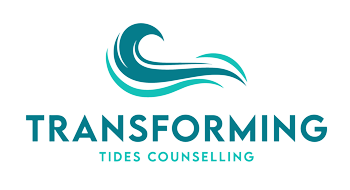The way that you talk to yourself can either help you or hinder you in reaching your goals in life. If you frequently call yourself unflattering names, tell yourself that you will do something wrong, it is not only harmful to your growth, it also causes you unnecessary mental anguish.
What is Self Criticism?
Self-criticism is when your inner voice evaluates who you are in a negative way. Although some self-criticism can put you on a path to changing patterns or values in a helpful way, too much criticism limits your growth.
The question is, how much is too much? If you feel like you are very disappointed in yourself much of the time, or that you are constantly getting in your own way, the intensity of self-criticism has likely overstepped the line from useful to hurtful.
Common hurtful things you might say include:
- I made yet another mistake.
- I am so stupid.
- I am not good enough.
- They hate me.
- I don’t belong here.
- I am a disgusting person.
- I can’t do this.
Three steps to lessen harmful self criticism
Luckily, you can take steps to move from being your own enemy to being a good friend to yourself.
- Treating yourself as someone you care about. Self-compassion means looking at yourself with understanding, and not harsh judgement. It means that you honor yourself with care and acceptance. This does not suggest that you always approve of decisions that you make, reactions that you have to situations, or things you do. It implies that you seek to understand with patience when you do things a certain way. For example, if you made a mistake at work, you might say, “Yes, I made a mistake and I feel bad about that. I suppose everyone makes mistakes sometimes. I was probably tired and distracted. I should not have made that mistake, but I understand how it happened.” You can compare this to: “I made a mistake. I am a terrible person!”
- Consider who your inner critic really is. Harmful self-criticism is very powerful. To really get in touch with this inner voice, try visualizing, drawing, or writing about what that inner critic might look like and sound like. Imagine the words the inner critic might often use. Does the inner critic look like a character on Netflix or in a book? Think about how you might confront this character. You even could imagine shrinking the character to next to nothing, so they are very tiny, unimportant, even ridiculous looking. You could make the voices of the character muffled or reduce the volume until it is not noticeable.
- Listen to your thoughts and feelings. You can have up to 6, 000 thoughts a day, and 90 percent of them are repeated thoughts. If you are experiencing strong emotions or thoughts, try slowing these responses, so you can identify the situation as something that sparks powerful feelings. When you recognize a certain trend of automatic reactions to situations or people, you can start to understand what touches you off. By pinpointing your triggers, you can start the process of understanding situations that lead to self-criticism and judgmental thoughts. Listening to your thoughts and feelings will help you in finding other approaches to navigating them.
Studies show that taming your inner critic can be learned with practice and self-awareness. By becoming more self-aware, you can have better insight into where self-critical beliefs arise. This will help you reframe your thoughts, and honor difficult feelings.
If you believe that you are struggling, and things are not shifting for you after using these suggestions, there could be more going on. Reach out for more mental health support here.
References Links:
https://www.healthline.com/health/how-many-thoughts-per-day
The team at Transforming Tides Counselling offers a free 20-minute phone consultation to hear your needs and answer questions you may have. It’s important to feel comfortable with your therapist. Let’s find out if we’re a good fit. Book your free phone consultation here.




